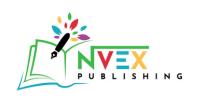Top 10 Book Adaptations That Surpassed the Original Story
While book-to-film adaptations can be a gamble, sometimes the magic of cinema elevates the source material, creating a truly unforgettable experience. Here are 10 films that, in the eyes of many, surpassed the original books they were based on:
-
The Shawshank Redemption (1994): Stephen King’s novella “Rita Hayworth and the Shawshank Redemption” is a powerful story, but the film adaptation by Frank Darabont expands on the characters and emotions, creating a cinematic masterpiece with enduring themes of hope, resilience, and friendship.
-
The Godfather (1972): Mario Puzo’s novel “The Godfather” is a sprawling saga of the Corleone family, but director Francis Ford Coppola’s film adaptation condenses the story and deepens the characters, creating a cinematic touchstone for gangster films and a powerful exploration of family, loyalty, and morality.
-
Jaws (1975): Peter Benchley’s novel “Jaws” is a suspenseful thriller, but Steven Spielberg’s film adaptation utilizes masterful visual storytelling and the iconic John Williams score to elevate the fear factor and create a cultural phenomenon that redefined the summer blockbuster.
-
The Lord of the Rings Trilogy (2001-2003): J.R.R. Tolkien’s epic fantasy series “The Lord of the Rings” is a beloved classic, but Peter Jackson’s film trilogy brings Middle-earth to life with stunning visuals, sweeping landscapes, and a compelling portrayal of Frodo’s journey and the fellowship’s struggle against evil.
-
Fight Club (1999): Chuck Palahniuk’s novel “Fight Club” is a dark and satirical exploration of masculinity, consumerism, and societal disillusionment, but director David Fincher’s film adaptation utilizes its visual medium to create a visceral and thought-provoking experience that stays with the audience long after the credits roll.
-
The Silence of the Lambs (1991): Thomas Harris’ novel “The Silence of the Lambs” is a chilling psychological thriller, but Jonathan Demme’s film adaptation masterfully portrays the complex relationship between Clarice Starling and Hannibal Lecter, creating iconic performances by Jodie Foster and Anthony Hopkins, and leaving an indelible mark on the thriller genre.
-
No Country for Old Men (2007): Cormac McCarthy’s novel “No Country for Old Men” is a bleak and violent tale of fate and morality, but the Coen brothers’ film adaptation captures the essence of McCarthy’s prose and the film noir atmosphere, creating a suspenseful and thought-provoking cinematic experience.
-
The Princess Bride (1987): William Goldman’s metafictional novel “The Princess Bride” is a playful and humorous take on the traditional fairy tale, but the film adaptation directed by Rob Reiner perfectly balances the comedic elements with genuine romance and adventure, making it a beloved classic for all ages.
-
Blade Runner (1982): Philip K. Dick’s novel “Do Androids Dream of Electric Sheep?” explores themes of artificial intelligence and humanity, but Ridley Scott’s film adaptation expands on these themes with its neo-noir atmosphere, stunning visuals, and philosophical ambiguity, leaving audiences to ponder the nature of existence long after viewing.
-
The Handmaiden (2016): Sarah Waters’ novel “Fingersmith” is a complex Victorian-era story of deception and betrayal, but South Korean director Park Chan-wook’s film adaptation “The Handmaiden” reimagines the story with a twist, adding elements of suspense and dark humor, and creating a visually stunning and thought-provoking cinematic experience.
This list is just a starting point, and there are many other examples of successful book-to-film adaptations. What are some of your favorite adaptations that you think surpass the original story? Share your thoughts in the comments below!


3 Comments
Join the discussion and tell us your opinion.
I agree – I think both options are fine, just depending on who it is reading the book (ebook). Most readers i know actually have both models in place! Although depending on the book subject, i have noticed some digital copies aren’t always that much cheaper than paperbacks.
The reason i prefer paper books:
– I feel like i am buying something in my hands i can pass down over the years
– some paper books can become rare making them more valuable
– you can re-sell paper books in your collection to finance new one’s
But as mentioned – it really is a personal option, and i think that either way as long as people are still reading – it is all good.
I am old school.
Frankly, eBooks have yet to be my cup of tea, even though I have read a few of them.
I like paper books for the following reasons:
– I like the smell of paper;
– I like the tactile feel of paper texture, especially with my finger (as my visual pacer) “doing the walking”, so to speak;
– I like to flip through the book;
– I like to make marginal annotations. A lot of them, including mini-idea maps and graphic organisers;
– I like to put sticky notes – with T2D/A2T/Q2P – here and there;
– I like to stack up books on my workdesk and bedside table, for random reading;
– I like to line up my books on the shelf with book spines facing front for KIV and quick reference;
So, to respond to the thrust of your question, I don’t think you can do all the foregoing things with an eBook.
At least from my perspective, I find it more productive reading paper books.
Thakks for your commen.
Yes, at least in my experience you do and the reason seems simple enough. ebooks offer easy portability and change. When I read a physical book, I generally have the one book lying around or with me if I am traveling. If I want to read another book, I have to either get up, put that book back and fetch another one from the shelf, if I am not at home I need to go out and buy or borrow another one. When I am reading an ebook, another book is just a few clicks away.